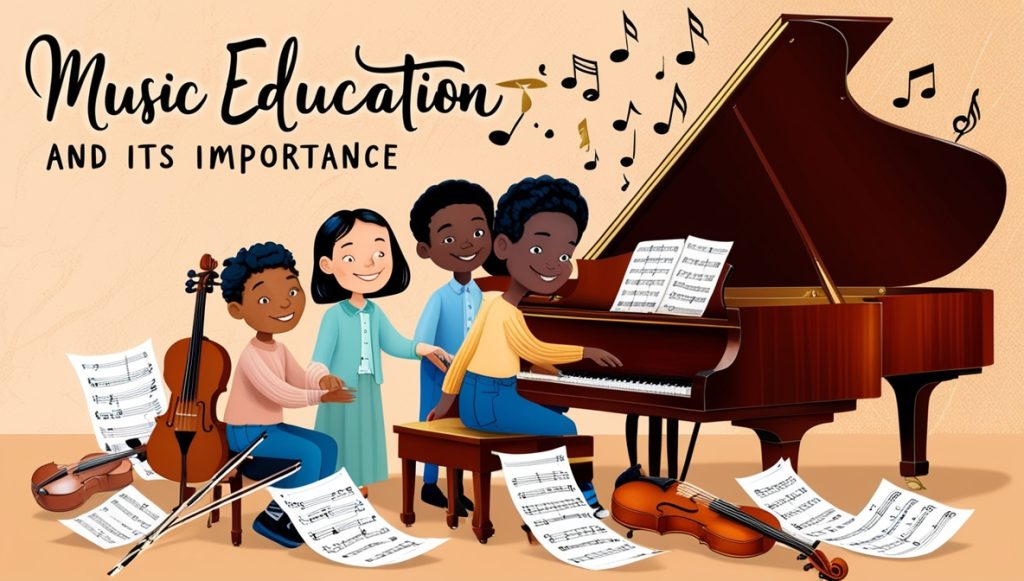Music education plays a vital role in the development of individuals, providing not only a foundation in music theory and practice but also fostering cognitive, social, and emotional growth. In schools and communities around the world, music programs offer students the opportunity to develop skills that go far beyond playing an instrument or reading sheet music. The importance of music education extends to enhancing academic performance, promoting creativity, and cultivating cultural awareness.
Cognitive and Academic Benefits
Research has shown that music education positively impacts cognitive development and academic performance. Learning to play an instrument requires students to focus on multiple tasks simultaneously, such as reading music, maintaining rhythm, and coordinating finger or hand movements. This process strengthens neural connections in the brain and enhances areas related to memory, problem-solving, and spatial-temporal reasoning.
Students involved in music education often show improved performance in subjects such as math and science. The discipline required to learn music notation and the mathematical understanding of rhythm and timing can enhance students’ mathematical abilities. Moreover, learning to analyze and interpret music can develop critical thinking skills, which are applicable in various academic fields.
Social and Emotional Development
Music education fosters social and emotional growth by providing students with an outlet for self-expression and emotional release. In an increasingly fast-paced and stressful world, music offers a way for individuals to process emotions and find comfort. By playing an instrument or singing, students learn to channel their feelings into a creative form, promoting emotional well-being and resilience.
In group settings like school bands, orchestras, or choirs, students develop teamwork and collaboration skills. Playing music with others requires communication, cooperation, and a shared sense of responsibility. These experiences help build social bonds and foster a sense of community, as students learn to listen to and support one another in achieving a collective goal. Music education can also boost self-esteem, as students gain confidence in their abilities through practice and performance.
Cultural Awareness and Diversity
Music education also exposes students to a wide range of musical traditions and cultural expressions from around the world. By learning about different genres, instruments, and styles, students gain an appreciation for the diversity of human creativity and the ways in which music reflects cultural identity. This exposure helps foster open-mindedness and a broader understanding of the world, making students more empathetic and culturally aware.
For example, studying classical music from Europe, jazz from the United States, or traditional African drumming allows students to explore the historical and cultural contexts of these art forms. Music education thus plays a key role in preserving and promoting cultural heritage, ensuring that diverse musical traditions are passed down through generations.
Creativity and Lifelong Learning
Music education nurtures creativity, encouraging students to think outside the box and explore new ideas. Whether composing original pieces or improvising on an instrument, students are constantly engaging their imaginations and experimenting with sound. This creative process enhances their ability to innovate and solve problems, skills that are valuable in both personal and professional contexts.
Additionally, music education promotes lifelong learning. The skills developed through music—such as discipline, perseverance, and attention to detail—are transferable to other areas of life, encouraging a love for learning that extends beyond the classroom. For many, the joy of playing music becomes a lifelong passion, providing a source of personal fulfillment and enrichment.
Conclusion
Music education is essential for holistic development, offering cognitive, social, emotional, and cultural benefits. By fostering creativity and critical thinking, building social skills, and promoting cultural awareness, music education empowers students to succeed in both their academic and personal lives. Its lasting impact goes beyond the classroom, making it an indispensable part of education systems worldwide.



